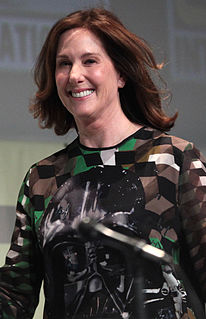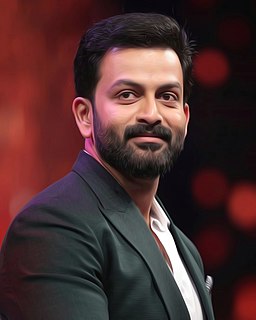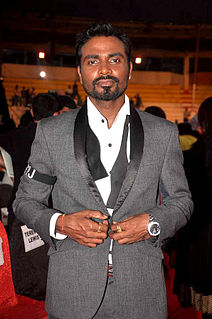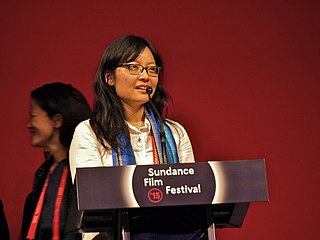A Quote by Kathleen Kennedy
A successful film begins by choosing a director whose creative vision will define the choices made by everyone involved in the film.
Related Quotes
Me and Kirby are very collaborative and it changes from film to film. The first project we worked on together, Derrida, we co-directed. The last film Outrage, I was the producer and he was the director. This film was much more of a collaboration - he is the director and I am the producer - but this is a film by both of us.
In Hollywood, story content of movies follows a hierarchy of power, not the relative quality of various ideas. Hollywood does not lack for quality writing. It's just that quality writing commonly has to be sacrificed in order to propel a film into production. A studio needs a star and a director to make a film, so those are the folk who'll define the content. If they don't have the same creative sensibilities, then the content will change.
It does not feel any different being directed by a first-timer as long as I am convinced that the director is passionate about the film he or she is making. If you get a sense of their vision for the film and their aesthetics of your performance, then it does not matter whether you work with a new or an experienced director.
When you have your chance to make a film, don't focus on pleasing everyone. I think the goal is to live in that sweet spot where you focus on making a good film and you have fun with your collaborators, but you don't waste your energy chasing approval every which way. When you have a vision and a good story and you've managed to raise funding, it is your approval as a director that everyone should be seeking. It's very simple.




































